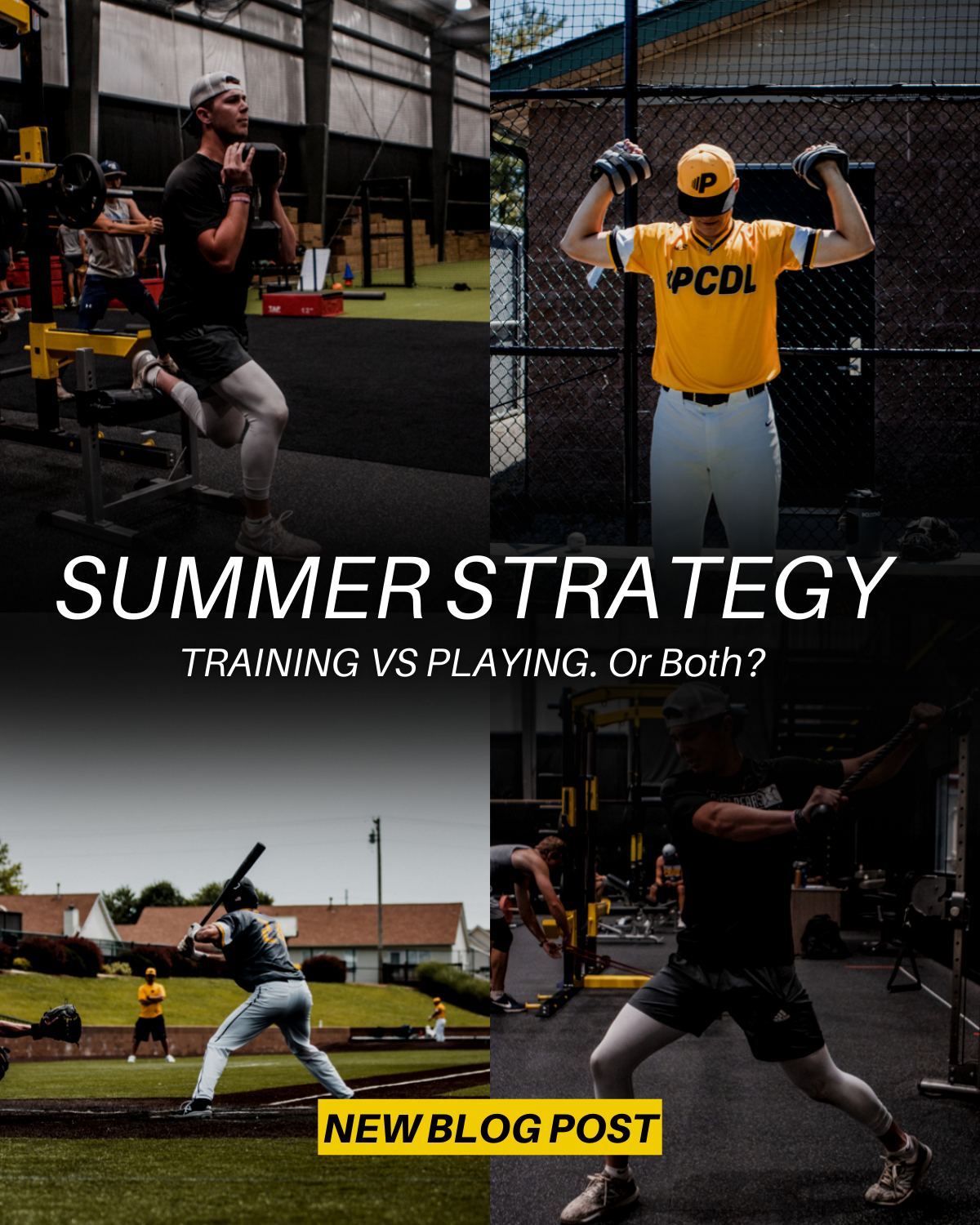Summer Ball: Train or Play?
I’m going to preface this blog by saying that summer ball can be a great thing for college pitchers. There are great experiences and memories to be made in summer leagues all across the country, but do these leagues have the athlete’s best interest at the forefront? The answer is typically no. Yes, it’s a great opportunity to get innings if you didn’t pitch much during the spring season, but player development is almost non-existent - and that is a problem. Summer is one of the only times throughout the year that a college pitcher has to truly get better as a player. During the fall, you’re probably competing for a job - facing hitters. During the spring, you are either throwing innings for your team trying to win a conference title/tournament (focused on competition) or not getting many innings (coach is worried about players who are getting innings). Both times of year leave little room for dedicated time to make yourself a better pitcher; whether that be working on the delivery itself, your arsenal, or in the weight room. The time to make yourself better is the Summer.
So nobody should play summer ball?? No, that isn’t the case; but the majority of athletes would be better served spending some chunk of their Summer just training and focusing on getting better at pitching. There will always be exceptions. Established players who have a chance to get drafted should go play (typically in the Cape Cod League) - they need to prove they can withstand more games/innings like they will experience at the next level, and prove they can perform against similar quality players. An arm with big stuff (velocity, movement) who didn’t get many innings during the spring is also a great candidate to go play summer ball. Training for more velocity or stuff isn’t going to do athletes in this bucket much good. Instead, they need to go compete in the Summer to prove they can get hitters out with their great stuff. Another good fit for summer ball is the reliever turned starter. If you’re used to coming out of the bullpen but your coach wants you stretched out to start games next season, you need to figure out a weekly and daily routine that gets you ready to take the ball every 6 or 7 days and build your arm up to withstand a starter workload.
Summer ball is NOT a good fit for pitchers who are looking to move on to the next level, whichever level that may be, and don’t currently have the velocity or stuff to pitch at that next level. No matter what level you are trying to make it to, velocity is a barrier for entry. If you don’t have a great track record of success (even if you do) and do not meet whatever that velocity barrier is, you should spend your summer training to improve it. That doesn’t mean you have to go through a rigorous pulldown program, but rather get on a holistic, dedicated program to address your lowest hanging fruit and improve in all aspects of the development (mobility, strength/power, biomechanics, pitch design, workload management).
Best case scenario is you get to develop your strength and skills while still being able to get innings and compete. There is a ton of value in working your ass off to get better in a facility all summer AND being able to take those development gains into competition and learn how to get outs with newfound strength, velocity, and stuff. We at PPP have pioneered this idea for the past 4 years with the Premier Collegiate Development League. Athlete’s come to St. Louis and get a comprehensive assessment using world class technology to create a hyper-individualized plan to meet their goals while still pitching in a game against other collegiate players one time per week. If you have any questions or think this would be a good fit for you or some of your players, send me an email noah@premierpitching.com
- Assistant Director of Pitching, Noah Junis.

